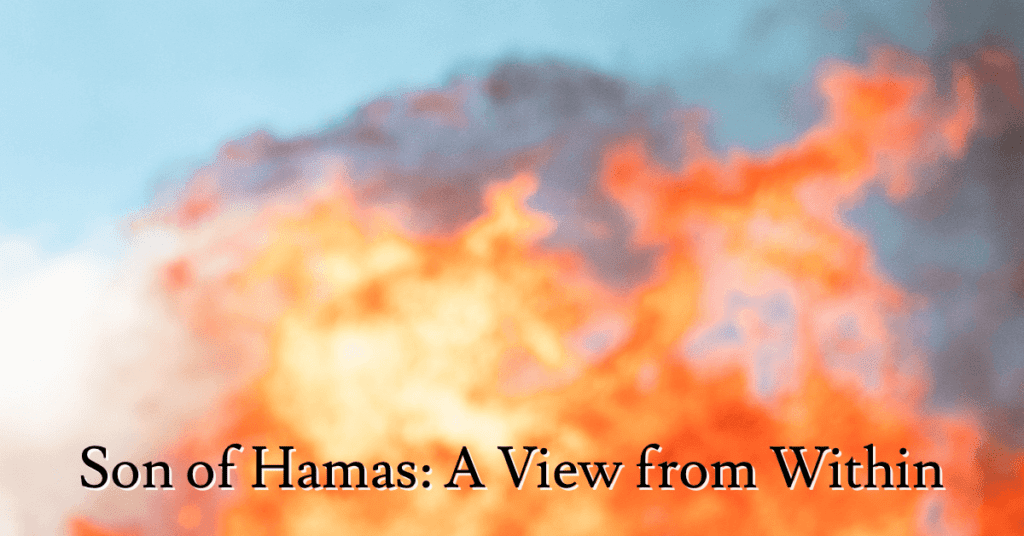Table of Contents
Since the war with Hamas began on October 7th, I have been consuming information. Besides checking the news all day long, I have read articles and books, listened to podcasts, and watched videos galore. And I’ve been trying desperately to keep an open mind. It’s not at all easy when your country’s under attack, your friends are risking their lives to keep you safe, and propaganda is hitting you hard from every angle.
But I do my best. It’s well-documented that I’m not always a fan of my own country. But I can’t state it enough that my problems with Israel are based on either societal characteristics or abhorrent policies toward its own citizens. They are not based on security matters. At all. I love my people, I want them healthy and safe, and I want Israel to exist forever.
So I come to the discussion with an inherent bias, as I believe all people do for all issues. But that doesn’t mean I’m at all closing my mind off from the possibility of understanding things deeper and from multiple perspectives.
Son of Hamas

In my research, I stumbled upon the book Son of Hamas, by Mosab Hassan Yousef, and I knew it was something I had to read.
I really enjoyed reading his tale, and found myself constantly wanting to find out what happens next. Mosab was raised in the home of an extraordinarily pious Muslim religious leader in Ramallah, who would found an organization known as Hamas. Mosab’s environment led him toward a virulent hatred of Israel, and through a series of mishaps found himself taken, beaten, interrogated, and imprisoned by the Israeli military.
While in prison, Mosab discovered the true nature of his fellow Hamas cronies. Not only did some of their religious fervor simply annoy him, but he witnessed them brutally torture other prisoners in order to obtain ridiculous confessions of laundry lists of sins that were comically absurd. These signed confessions would then be sent to their home communities leading to alienation of their families.
It was in prison that he grew a distaste for Hamas, but also where he was recruited to become an informant for Israel, a role he did with distinction for years. During those years he discovered Christianity, decided he wanted a different life, and ultimately abandoned everything to attempt to start over again in America.
I liked the entire book, and even though I’ve heard people say many of these things before, there is a certain level of honesty and authority coming from someone with Mosab’s background.
I wanted to take two quotes from the book and talk about them a little.
Can You Destroy Hamas?
Hamas was not an organization as most people understood organization, with rules and a hierarchy. It was a ghost. An idea. You can’t destroy an idea; you can only stimulate it. Hamas was like a flatworm. Cut off its head, and it just grew another.

I’m going to be very honest here.
This quote scares the crap out of me.
It calls into question the entire war effort that our beautiful friends and family have been fighting and dying for for months now.
If someone were to tell me that they were going to college to become president of the world, I would speak to them about more realistic goal setting. First, sir, the position you seek does not exist. Second, even if it did, it would be way out of reach for almost all of humanity. So it’s best to take things down several notches, so you could make real accomplishments in life.
Questioning the Narrative

Every time I read about Netanyahu declaring we will remain in Gaza until we’ve fully eradicated Hamas, I panic a little. Are we setting ourselves up for inevitable failure? Is this goal something that actually can be accomplished? Or something we can come close to quantifying?
How many members of Hamas must die before we declare their organization “eradicated”? Doesn’t Hamas exist outside of Gaza? Wouldn’t we need to launch a greater incursion into other Arab territories and possibly other countries to root out every single member?
And even if every last member were arrested or killed, can’t anyone alive just declare that they are now Hamas, thus setting us backwards in our goal? And couldn’t this take place at any point in history? Won’t the rebuilding of the concept begin the moment we exit and give it oxygen to grow again?
These are thoughts I’ve had since day one of the war, but when I think them, they’re just concerns. When Mosab says them, with everything he’s seen and knows, there is significantly more authority. He put one of my greatest fears into words, and did so long before October 7th.
What is the answer to these powerful and extremely reasonable concerns?
The Source of Fighting
I asked myself what Palestinians would do if Israel disappeared—if everything not only went back to the way it was before 1948 but if all the Jewish people abandoned the Holy Land and were scattered again. And for the first time, I knew the answer.
We would still fight. Over nothing. Over a girl without a head scarf. Over who was toughest and most important. Over who would make the rules and who would get the best seat.

Again, this is something I understood intuitively, but something I often fear saying out loud. Why? Because my voice has no authority on the topic. I could scream from the rooftops that there are societies in which people think and behave differently than in the West, but at best I would be ignored. At worst, I’d be accused of racism.
But some people were born to fight.
I recall many years ago being stuck on a bus in Gush Etzion. The roads were closed because there were a slew of Palestinians attempting to throw rocks at vehicles. Until the problem was solved, the bus wasn’t going anywhere.
But something shocked me when we finally went home. The road was covered with stones. What had happened? Absent cars to chuck rocks at, they tossed them anyway. They littered an empty road with rocks, without actual targets!
Why?
Because they fight. Because they’re angry and aggressive. If there aren’t Jews in Israel to fight with, they’ll fight with each other. If they’re alone, they’ll fight with an empty road.
It’s just who they are.
So I ask: How do we win this prolonged war? How do you defeat an enemy, when that enemy is an immortal concept? And how do you stop violence and aggression when it’s a part of their DNA?



